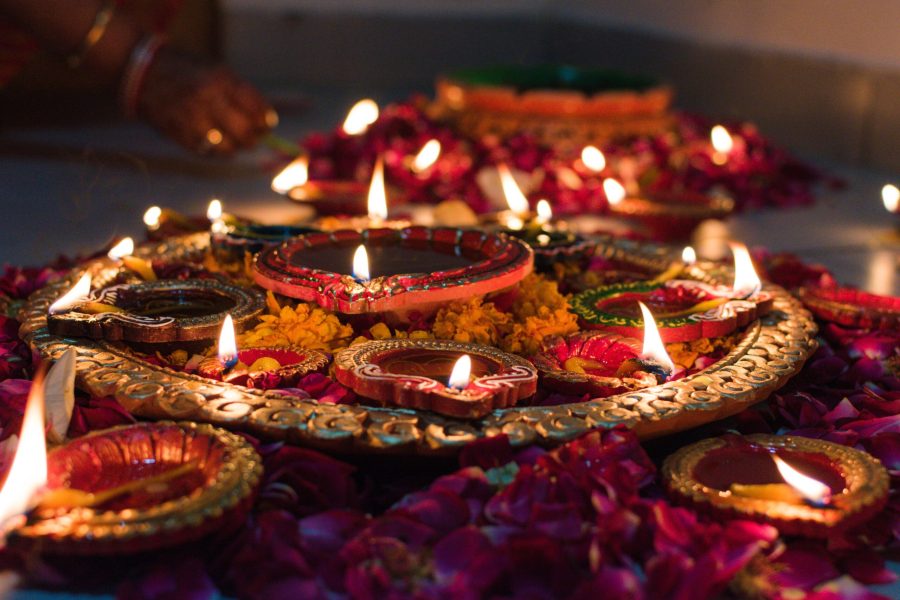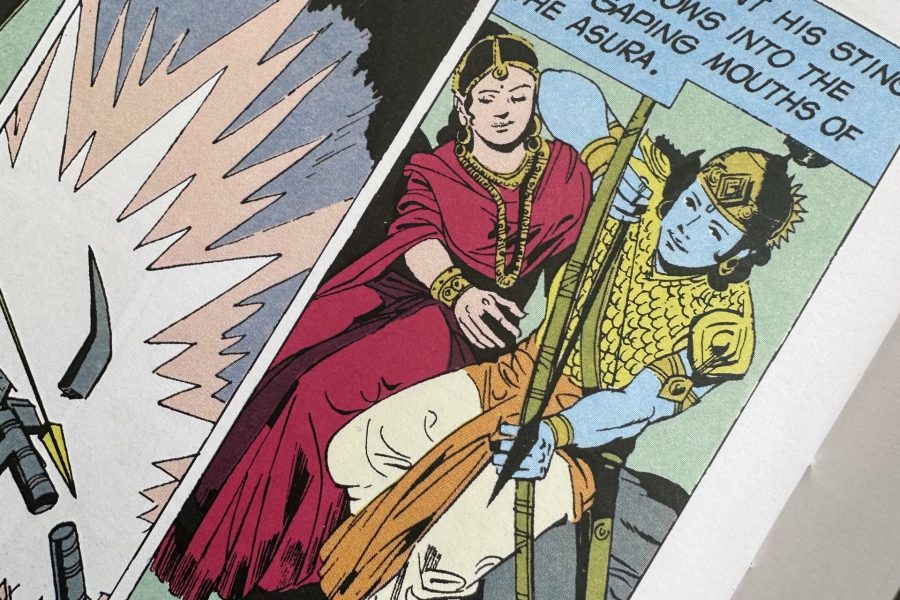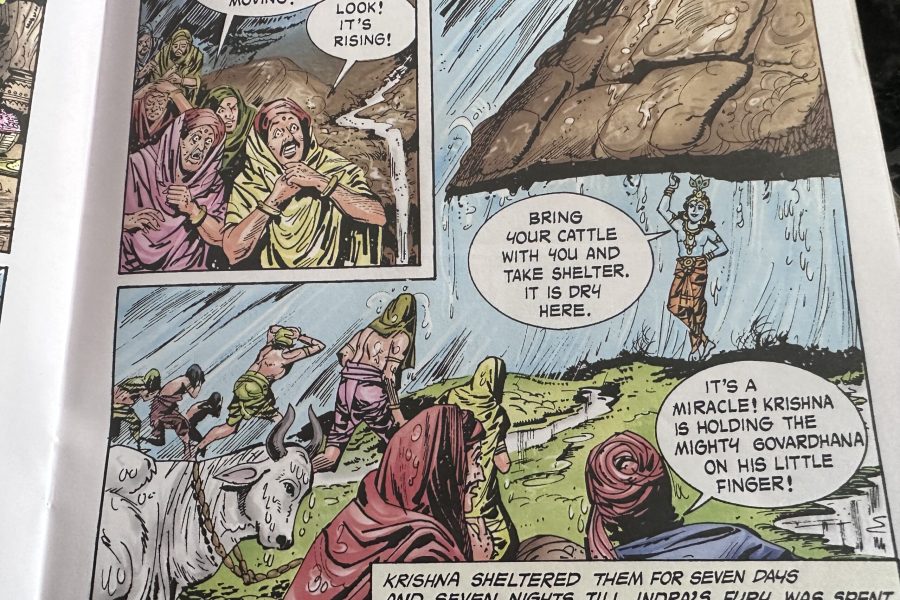How Diwali Stories encourage Multicultural employee relationships and Inclusive Leadership

Image by Udayaditya Barua | Source: Pexels.com
Diwali is an open door to many cultural traditions that hold deep significance for millions of people across India – in many different ways! So, as an employer, don’t scratch your heads over your employees giving you diverse answers when you ask them what the plans for Diwali are. They might seem as different as night and day, but that’s the beauty of it all! These varied festive assortment might make you want to skip the celebrations, but here is why you should not. As Diwali at workplace can be an opportunity to learn about multicultural employee relations and inclusive leadership from snippets taken from our stories and traditions.
#1 Lord Rama's Return to Ayodhya

Source: Amar Chitra Katha
One of the most prominent stories associated with Diwali is the return of Lord Rama to Ayodhya after defeating the demon king Ravana. According to the epic Ramayana, Lord Rama, accompanied by his wife Sita and brother Lakshmana, returned to Ayodhya on the day of Diwali after 14 years of exile and the victorious battle with Ravana.
To celebrate this homecoming and the triumph of good over evil, people in various parts of India light oil lamps (diyas) and decorate their homes with colourful Rangoli designs.
Lessons we can take to our work life:
Upholding justice to your teammates: Just as Lord Ram showed exceptional leadership with the justice he showed to all members of his army no matter who they were, a leader needs to possess the wisdom and keen understanding of diversity and inclusion at workplace, the needs of his teammates and treat everyone with respect.
Timely revisiting of company values and ethics: Lord Ram’s unwavering devotion to integrity and morality is a reminder for all of us to uphold our ethics. As leaders, we need to make sure that our work/ actions/ leadership are inline with our ethical values, morals, multicultural workplace diversity & inclusion, while also contributing to the progress of the company.
Reminder to keep up your promises: Inspite of all the obstacles, Lord Ram never failed to keep his promises and that is how he earned the trust of his people & citizens. In a similar way, no leader can expect his team to trust him or work with their all their heart for him, if he does not keep his promises to his team.
Be a Leader that people look upto: Being the epitome of humility, justice, compassion and morality made him the king that his citizens celebrated and looked up to. We don’t need be the epitome of something but we can surely strive to demonstrate behaviour & skills that you want people to follow. Aligning your words with your actions will not only help in building trust among your multicultural workforce but will also make you a leader that your teammates look up to.
#2 Krishna and Sathyabhama’s Victory over Narakasura

Source: Amar Chitra Katha
In the southern and western parts of India, Diwali is also associated with the legend of Lord Krishna’s victory over the demon Narakasura. As per mythology, Narakasura was a powerful and oppressive demon who caused immense suffering and imprisoned 16,000 women against their will. Queen Satyabhama who was Krishna’s consort vowed to destroy him on the day of Diwali, liberating the people from his tyranny.
In celebration of this victory, people light fireworks and burst firecrackers, once again, championing the triumph of good over evil.
Lessons we can take to our work life:
Celebrate diversity in leadership: Lord Krishna and Satyabhama are so diverse in their approach and thinking, yet they worked harmoniously together towards victory. Diversity and Inclusion is a powerful force that helps in innovation, understanding, growth and ultimately success to the team and the organisation.
Women in leadership: It was Saytabhama a woman who led the war against Narakasura and gained victory with her will and power. The world today needs to recognise the unique perspective of female leaders in a multicultural workplace, their capability to lead a team and the part they play in the success of any organisation.
#3 Govardhan Pooja in Vrindavan

Source: Amar Chitra Katha
Diwali is also celebrated as Govardhan Puja. This tradition originated from the story of the little Krishna (all of 5 years old!) lifting the Govardhan Hill on his fingertips to protect the people of Vrindavan from the wrath of Lord Indra’s thunderstorm. The people of Vrindavan(all of them adults!) trusted a little boy whose wisdom and insights were ahead of an entire community. Govardhan Puja emphasises the importance of gratitude, community, sustainability and fights multi-generational differences.
In celebration, people prepare sweets and sing bhajans praying to Lord Krishna for protection and Lord Indra for protection from nature’s wrath.
Lessons we can take to our work life:
- Conserve environment: This story tells us that absolutely nothing is more powerful than mother nature. And we have a grave responsibility of conserving it. As leaders, we have the greater responsibility of upholding environmental and sustainability practices in every possible project.
- Care for community: Lord Krishna looked after his community and helped each one including the animals instead of safeguarding just himself and his family. This is the sense of community that needs to be instilled in a company. With growing importance to diversity and inclusion, you need to look beyond yourself and help others along the way. This strengthens multi cultural employee relations inturn helping in the success of each individual and the leader.
- Embrace multi-generational insights: The trust of the elders of Vrindavan in the wisdom and strength of a little boy led to saving an entire community. In the same way if everyone in a company value and embrace multi generational workforce, it will give the company a strategic advantage. The wisdom form experience and innovation from fresh perspective is a combination for success that is born from embracing multi generational diversity and inclusion.
To make Diwali celebrations in workplace meaningful to a business, revisit values of the festivals and how we can embed those values with the employees rather than its accessories like clothes, food and jewellery.
Celebrating Diwali at a workplace presents a wonderful opportunity for colleagues, employers and clients to come together and strengthen their professional as well as multicultural relationships. Through better understanding of the festive celebrations, employees can engage in meaningful conversations, bond over shared experiences, and develop a sense of camaraderie. This enhances teamwork, diversity, inclusion, and communication, leading to a more harmonious and productive work environment.
We at Indian Shades have various programs through which your employees can experience these Diwali stories and learn from them while also having a good time. Check these various programs and activities -> Fun Team Building & Cultural Activities for this year’s Diwali celebration.










